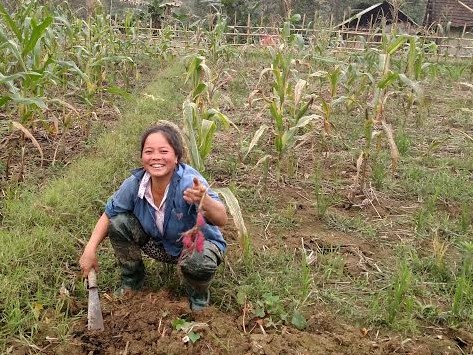
Warming Trend: Winter Crops Increase Family Food Security
Tam and Oanh are neighbors and close friends whose small fields are side by side. Every day, when one of the women is ready to work on her field, she calls to her friend and they walk to their plots together. Mixed into their conversations about work, family, weather and more are the sustainable farming techniques they’ve learned through FRB’s Vietnam Tan Son program.
They participated in a training course on planting crops that would perform well in the climate and soil conditions of the winter season when, after two harvests, farmers traditionally let their fields lay fallow. Tam and Oanh agreed that the practice wasted precious resources that could allow them to feed their families without having to work on someone else’s land for cash.
The farmers were encouraged to experiment with rotational cultivation and increase the variety and number of crops in order to get more food and prevent soil diseases. After training, some pilot households received seed. Tam and Oanh were not on the pilot list, but their interest was high enough that they each bought seeds and committed to following what they learned at the training.
Oanh chose to grow sweet potatoes. Tam chose corn. Last year, Tam and Oanh were able to harvest their fields three times. By adding winter crops, their families did not suffer a food shortage. Tam notes, “We’ll plant winter crops next year. Having corn in winter makes us feel warm in our stomachs.”
The Tan Son program will continue to use agricultural models to evaluate and promote the effectiveness of different crops and farming techniques. Training activities not only help people in difficult areas achieve sustainable food security, they promote good relationships within the community.
Vietnam Tan Son encompasses 6 communities, 512 households, and 2,212 individuals
